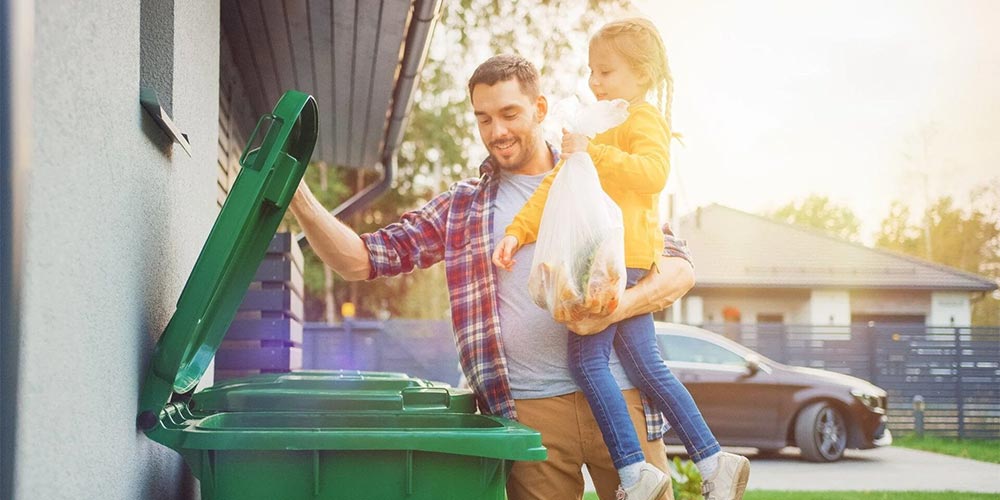
Reducing rubbish before it even reaches the removal stage is not only beneficial for the environment but can also save you money and time. With a bit of planning and some simple changes to your daily habits, you can significantly cut down on the amount of waste you produce.
Here are some practical tips from Dump-It, a leading rubbish removal company, to help you get started.
Assess Your Current Waste
Before making any changes, it’s essential to understand what kind of waste you’re currently producing. Spend a week or two tracking the rubbish you throw away. Note down the types of items and the volume of waste. This will give you a clear picture of where you can make the most significant reductions.
For example, you might find that a large portion of your waste comes from food packaging or single-use plastics. Identifying these patterns is the first step towards making more sustainable choices.
Embrace Reusable Items
One of the simplest ways to reduce rubbish is to switch from single-use items to reusable alternatives. This can be applied to various aspects of your daily life.
Consider using reusable shopping bags instead of plastic ones. Invest in a good quality water bottle and coffee cup that you can take with you on the go. Even small changes, like using cloth napkins instead of paper ones, can make a big difference over time.
Buy in Bulk
Purchasing items in bulk can significantly reduce the amount of packaging waste you generate. Many supermarkets and health food stores offer bulk sections where you can buy grains, nuts, and other dry goods without the need for individual packaging.
Bring your own containers to the store to fill up with the items you need. Not only does this reduce waste, but it can also be more cost-effective in the long run.
Plan Your Meals
Food waste is a significant contributor to household rubbish. By planning your meals in advance, you can ensure that you only buy what you need and use up ingredients before they go off.
Create a weekly meal plan and make a shopping list based on the ingredients required. Stick to the list when you go shopping to avoid impulse buys that might end up in the bin. Additionally, consider batch cooking and freezing portions to reduce waste further.
Compost Organic Waste
Composting is an excellent way to reduce the amount of organic waste that ends up in your rubbish bin. Items like fruit and vegetable peelings, coffee grounds, and eggshells can all be composted.
If you have a garden, a compost bin or heap is a great addition. Even if you live in a flat, there are compact composting solutions available, such as worm bins or bokashi systems. Composting not only reduces waste but also provides you with nutrient-rich soil for your plants.
Opt for Minimal Packaging
When shopping, try to choose products with minimal or recyclable packaging. Many brands are now offering packaging-free or reduced packaging options.
For example, you can buy loose fruits and vegetables instead of pre-packaged ones. Look for products that come in glass jars or cardboard boxes rather than plastic. Supporting brands that prioritise sustainable packaging can also encourage more companies to follow suit.
Donate and Reuse
Before throwing items away, consider whether they can be donated or repurposed. Clothes, furniture, and household items that are still in good condition can be given to charity shops or passed on to friends and family.
Get creative with reusing items. Glass jars can be used for storage, old clothes can be turned into cleaning rags, and cardboard boxes can be repurposed for organising your home. By finding new uses for old items, you can significantly reduce the amount of rubbish you produce.
Avoid Disposable Products
Disposable products, such as paper plates, plastic cutlery, and single-use cleaning wipes, contribute significantly to household waste. Whenever possible, opt for reusable alternatives.
For instance, use regular plates and cutlery for picnics and parties instead of disposable ones. Invest in a set of washable cleaning cloths instead of using single-use wipes. These small changes can add up to a substantial reduction in waste over time.
Repair Instead of Replace
In our throwaway culture, it’s easy to discard items that are broken or damaged. However, many things can be repaired with a bit of effort.
Learn basic repair skills or take advantage of repair services in your community. Fixing a torn piece of clothing, mending a broken appliance, or repairing a piece of furniture can extend its life and keep it out of the landfill.
Educate and Involve Your Household
Reducing rubbish is a team effort, especially if you live with others. Educate your household members about the importance of waste reduction and involve them in the process.
Set up a recycling station in your home and make sure everyone knows what can and cannot be recycled. Encourage children to participate by making waste reduction fun and rewarding. The more everyone is on board, the more successful your efforts will be.
Conclusion
Reducing rubbish before removal is a practical and achievable goal with numerous benefits. By assessing your current waste, embracing reusable items, buying in bulk, planning meals, composting, opting for minimal packaging, donating and reusing, avoiding disposable products, repairing instead of replacing, and involving your household, you can make a significant impact.
These small changes, when combined, can lead to a substantial reduction in the amount of rubbish you produce. Not only will you be helping the environment, but you’ll also find that your home is more organised and your lifestyle more sustainable. So, start implementing these tips today and enjoy the benefits of a cleaner, greener home.
